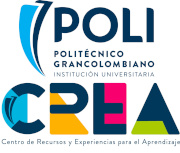Homosexuality, Culture, and Social Representations
Homosexualidad, cultura y representaciones sociales
Resumen
This article, product of a reflective research, aims to study the historic nature of homosexuality in our culture, as well as the social representations brought from the symbolic field and that promote, by means of the language, the most varied value attributions to human behavior. Starting from the representations of the Ancient Greece –where pleasure was the protagonist, albeit following certain rules–, going through its sinful status in the Middle Ages, and arriving to its categorization as a sickness, according to the attribution given by medicine during the XIX century. Our journey ends with the fact that homosexuality is not considered a pathological phenomenon –as established by Sigmund Freud, when writing three essays on sexual theory–. Freud’s work undermines the notion of sexuality and gives a new perspective with respect to the human being and his choices. Finally, based on the current heterosexual discourse (that condemns the new social representations of family, censoring homosexuals that raise children), we aim to elucidate the maternal and paternal roles, as established by Jacques Lacan, as not linked to any anatomic difference needed to assume the role of object of desire. Fruto de una investigación de reflexión, este artículo se propone a recorrer la historicidad de la homosexualidad en la cultura, así como las representaciones sociales advenidas del campo simbólico, que promueven, a través del lenguaje, las más variadas atribuciones de valores al comportamiento humano. Partiendo de las representaciones en la Grecia Antigua, donde el placer tomaba la escena, aunque con reglas, atravesando el estatuto de pecado, en la Edad Media, hasta llegar a la categoría de enfermedad, según la atribución diseminada por el discurso médico del siglo XIX, nuestro recorrido desembocará en la despatologización de la homosexualidad, promovida por Sigmund Freud, con la publicación de Tres ensayos de teoría sexual, obra que subvierte la noción de sexualidad y promueve un nuevo mirar para el sujeto e sus elecciones. Por fin, con base en el discurso heterosexista actual, que condena las nuevas formas de representación social de la familia, censurando la creación de hijos por parejas homosexuales, tenemos como objetivo dilucidar, a partir de las enseñanzas de Jacques Lacan, las diferentes funciones, materna y paterna, desconectadas de cualquier diferenciación anatómica necesaria a la asunción de un sujeto de deseo.
Recurso relacionado
https://journal.poligran.edu.co/index.php/poliantea/article/view/534Colecciones
- Poliantea [386]
Estadísticas Google Analytics

